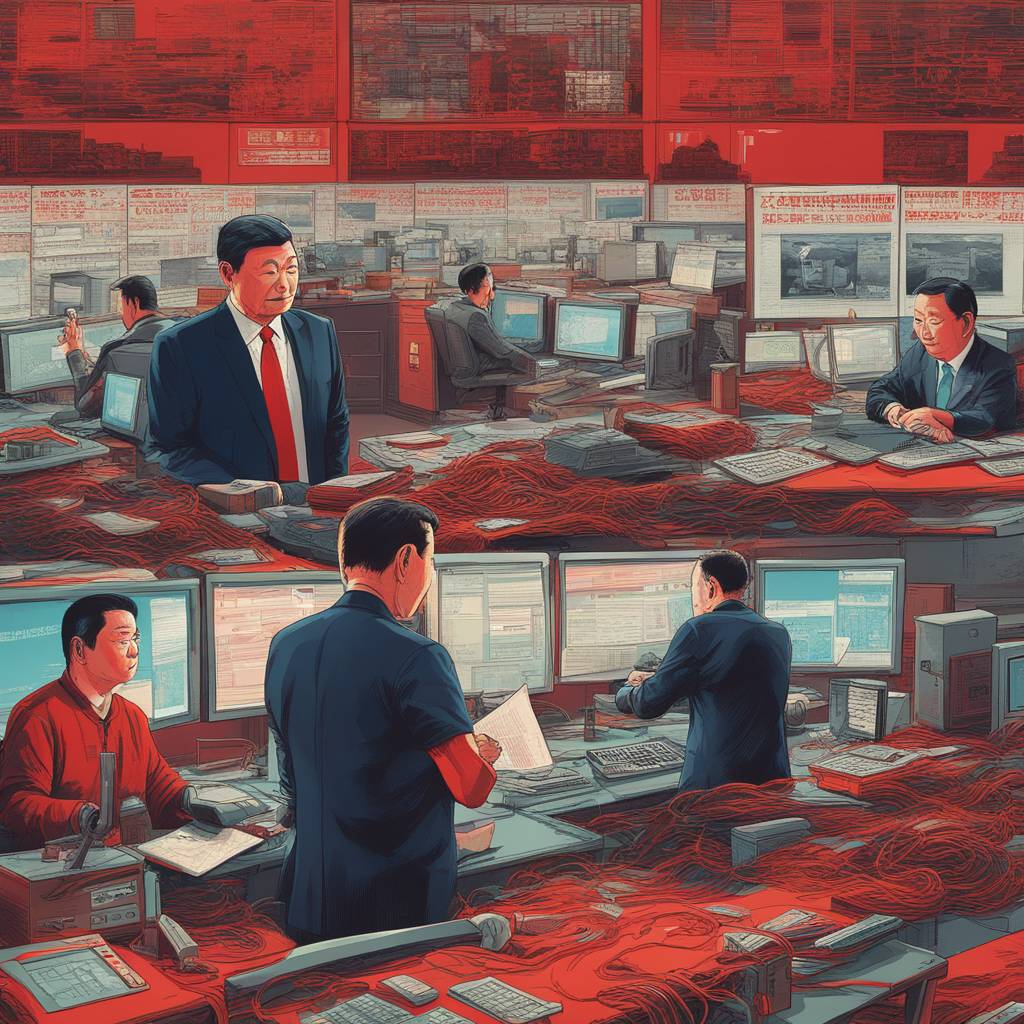The United States and Britain imposed sanctions on China’s elite hacking units on Monday, accusing Beijing’s top spy agency of placing malware in America’s electrical grids, defense systems, and other critical infrastructure. American intelligence agencies have warned that the malware discovered in U.S. infrastructure seemed to be intended for use in the event that the United States were coming to the aid of Taiwan. The Justice Department also indicted individual Chinese hackers for targeting and intimidating Beijing’s critics globally. The motive behind the British intrusion was more mysterious, involving the theft of voting rolls for 40 million British citizens as well as an attempt to hack into the accounts of members of Parliament. The British retaliation through sanctions underscores a hardening stance toward China, marking a significant shift in relations.
The intensifying cyberconflict between Western allies and China has raised alarms about the growing threats posed by state-sponsored cyberactors. The United States has increasingly coordinated with allies like Britain, Canada, and Australia to confront China’s hacking activities. The rise in cyberattacks and espionage by China has received less attention amid other global crises, leading to concerns among military and intelligence officials that this lack of focus may embolden Chinese leaders to continue such activities. The United States has sought to clean Chinese code from critical systems through a concerted effort named Volt Typhoon, while also issuing specific warnings to companies to tighten their cybersecurity measures.
Despite China’s dismissal of British reports of hacking as “fake news,” the Justice Department has announced charges against seven Chinese nationals for conspiracy to commit computer intrusions and wire fraud. The individuals were part of the group APT31, which has targeted American companies, governmental officials, candidates, and campaign personnel over the past 14 years. The perpetrators deployed more than 10,000 emails with hidden tracking links aimed at compromising recipients’ electronic devices. The Treasury Department added Wuhan Xiaoruizhi Science and Technology Company to its sanctions list for its involvement in the cyberespionage operation. These developments have emerged as China’s ministry of state security, under the leadership of the Chinese government, has taken over as the main hacking entity, replacing the People’s Liberation Army.
While the Biden administration has attempted to stabilize relations with Beijing, focusing on areas of cooperation such as combating the flow of fentanyl and fighting climate change, the imposition of sanctions on Chinese hacking units highlights the continued threat posed by cyberconflict. The Chinese government has denied involvement in such activities, despite evidence to the contrary. The theft of British voter registration data, although seemingly puzzling as such information is readily available from data brokers, underlines the global threats facing democratic processes and institutions. The British response through sanctions and vigilance in the face of cyberattacks demonstrates the seriousness with which such activities are viewed and the need for continued efforts to safeguard critical infrastructure.
The hacking incident involving the theft of voting data in Britain, and the attempted hacking of email accounts of members of Parliament, including lawmakers critical of China, has further heightened tensions and suspicion surrounding Chinese cyberactivity. The targeting of individuals who have been vocal in calling out China’s malign activity suggests a deliberate effort to silence critics and intimidate those who challenge Beijing. The infiltration of the Electoral Commission and the unsuccessful attempts to compromise parliamentary email accounts indicate a concerted and ongoing effort by Chinese hackers to gather sensitive information and potentially influence democratic processes. The public disclosure of these incidents serves as a stark reminder of the evolving nature of cyberwarfare and the need for increased vigilance and cooperation among allies to combat such threats.








